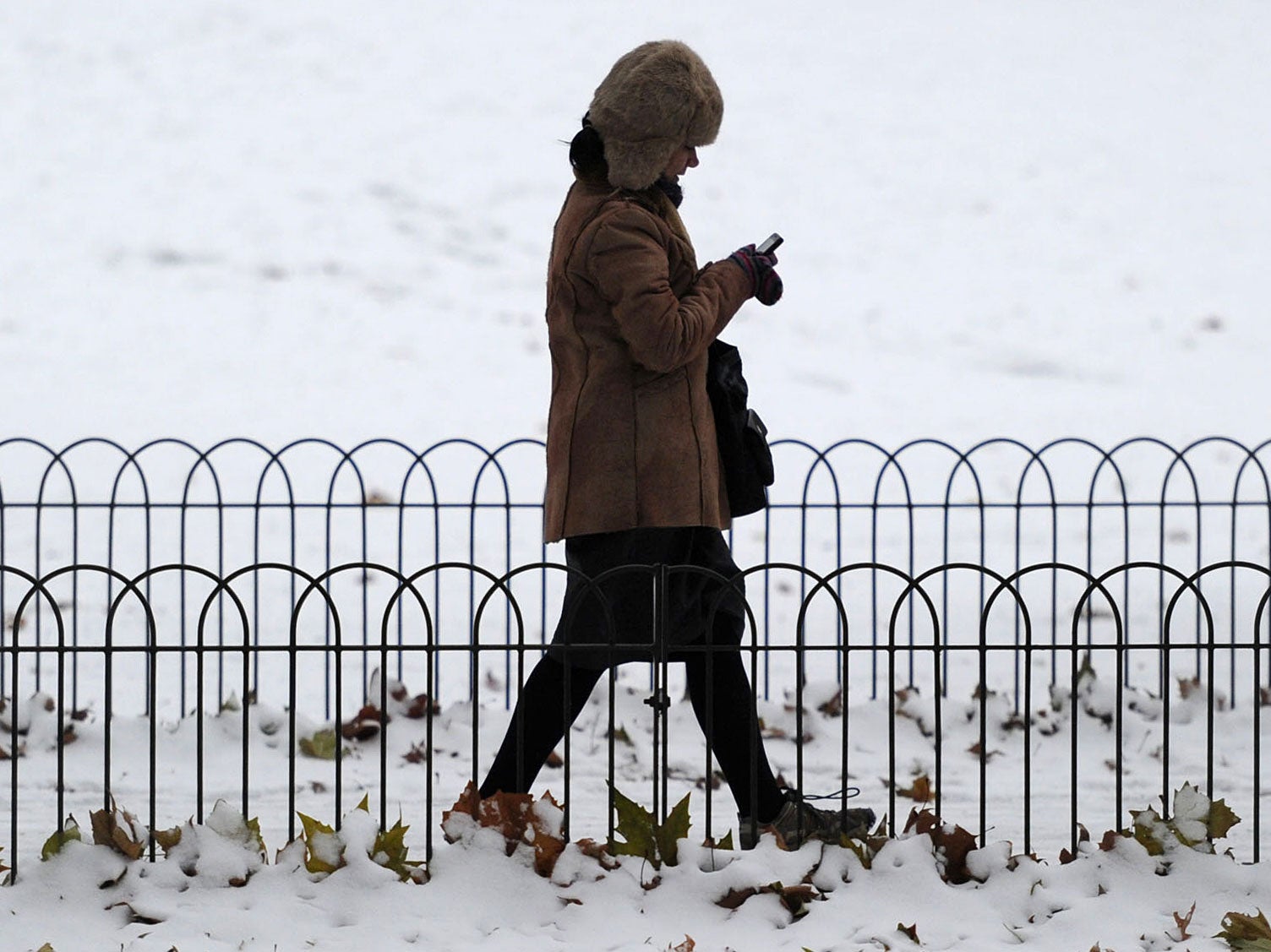The UK's cold weather could be reducing your smartphone's battery life
Cold weather could cause your phone to discharge much quicker - or turn off unexpectedly

Your support helps us to tell the story
From reproductive rights to climate change to Big Tech, The Independent is on the ground when the story is developing. Whether it's investigating the financials of Elon Musk's pro-Trump PAC or producing our latest documentary, 'The A Word', which shines a light on the American women fighting for reproductive rights, we know how important it is to parse out the facts from the messaging.
At such a critical moment in US history, we need reporters on the ground. Your donation allows us to keep sending journalists to speak to both sides of the story.
The Independent is trusted by Americans across the entire political spectrum. And unlike many other quality news outlets, we choose not to lock Americans out of our reporting and analysis with paywalls. We believe quality journalism should be available to everyone, paid for by those who can afford it.
Your support makes all the difference.The UK's current cold snap has caused travel disruption and temperatures as low as -14°C in some parts of the country - but if you're not careful, the freezing temperatures could also play havoc with with your smartphone.
Many realised that smartphones don't cope too well with hot temperatures during last year's warm summer, but they can also run into problems when it's too cold.
That's because the vast majority of smartphones use lithium ion (or Li-ion) batteries for power.
When temperatures dip, the internal resistance of Li-ion batteries increases, lowering their capacity and causing them to become less efficient.
The lower the temperature gets, the worse this problem becomes - a battery that works fine at room temperature may only last half as long when it's below freezing. Some users say their phones have drained alarmingly fast when they've been out in the cold for only a short period.
This is why it's sometimes hard to start your car when it's been cold outside - the low temperatures affect the battery and decrease its performance.
On its website, Apple says the 'comfort zone' for its mobile devices is between 0°C and 35°C when switched on. That minimum temperature falls to -20°C when the phone is off, because the battery doesn't have to work to power the phone. While battery models differ between manufacturers, the comfort zone of all modern smartphones will generally be within this range.
Some users report their phones switching off in cold temperatures, even when the battery meter is showing they still have plenty of power left - this probably isn't due to the cold itself, but because the battery meters are calibrated at normal temperatures.
When it gets cold and your battery capacity goes down, the phone may say you have 40 per cent left, even if it's actually close to dying.
Obviously, the solution to this problem is to try and keep your phone warm in cold weather - sticking it in a warm pocket close to your body should do the trick.
If you plan on having your phone out a lot - possibly while taking pictures of the unexpected frost - a well-enclosed case could also prevent your battery from draining too quickly.
Join our commenting forum
Join thought-provoking conversations, follow other Independent readers and see their replies
Comments